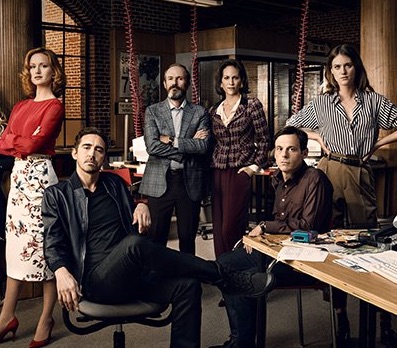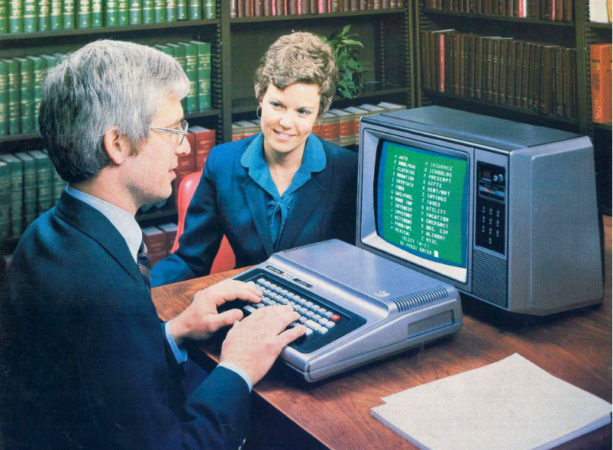By Petar Marinkovic, CTO, IOD
Even though TV has been deemed “bad” for us, I still follow a lot of sports and watch a couple of TV shows here and there. In my defense, though, I don’t binge watch, and I don’t have an active Netflix or Amazon Prime subscription. Being an IT geek, techie, call it whatever you want, it wouldn’t make sense if I didn’t tune into a show that was related to the Internet, gadgets, cloud, or any IT-related topic, right?
Relax, though, this isn’t another blog post trying to convince you to watch “Black Mirror” or “The Handmaid’s Tale.” I’m actually trying to lure you into a much deeper conversation. Just be patient.
Silicon Valley: Past vs Present
Two shows heavily based in the tech world that have caught my attention in the last couple of years are AMC’s “Halt and Catch Fire” and HBO’s “Silicon Valley.” A quick glance at IMDB indicates the two are very different shows. The first one is serious, and sometimes difficult to digest, while the second is very relevant and hilarious. What do the two have in common?

In addition to their similar IMDB ratings, the shows share themes: a group of people employed in IT trying to create the next best thing, fulfill their own hunger for tech, but all the while attempting to get rich, and be the next Jobs, Gates, or Bezos. In both shows, we find a mix of shy, geeky characters for whom we cheer and sympathize. However, we also come across ruthless, unlikable investors, managers, and directors, who care only about cold hard cash. But what happens when we take a look a little below the surface?
“Halt and Catch Fire” is set in the 80s and 90s, focusing on the impact of the PC and Internet revolution in both decades. It follows several strong personas, adult engineers already in their mid-30s, juggling 9-to-5 jobs, family, and personal aspirations. In this show, only one character, Cameron Howe, is an up-and-coming hacker (brilliantly performed by Mackenzie Davis). She’s fresh out of college, in her 20s, without a worry in that world of “adults.”
“Silicon Valley,” in comparison, is set in the present, in which sunny California is teeming with young developers/dreamers, venture capitalists, and executives, all of whom are barely 30. Only the awesome Stephen Tobolowsky (as Jack Barker) represents the 40+ crowd (and Tobolowsky himself is in his 60s.)

So here we get to the heart of the matter.
Isn’t it interesting that these two shows subtly highlight a major issue in the world of tech today? Essentially the troubling question of “what happened to IT veterans?”
Just as in “Silicon Valley” the show, today’s Silicon Valley’s celebrities are “babies.” Thomas Spiegel of Snapchat was born in 1990 (he founded the company in his early twenties), Zuckerberg is 33 (and we all know when he launched Facebook), and the AirBNB big three are also not even close to their 40s. If we look at the average employee age at the most popular tech companies today even the writer of this post (I was born in 1985!) would be considered an “old man.”
So … Where Did the Old Guys Disappear to?
How did we reach this situation, where the “old guys” are considered obsolete in tech? I don’t think there is short and simple answer. IT is an industry in which even a couple of years can seem like a century, since everything is moving so fast and unpredictably. Look at the rise of the public cloud, a phenomenon that’s introducing new skills and new jobs almost every day, but also slowly making some professions obsolete.
In such situations, some veterans adapt right away, others adjust more slowly, and some never will. On the other hand, someone born in the mid-90s is used to the need to adapt quickly — for him, this is how it’s always been.
This young developer doesn’t care how the world looked like in the times of dial-up modem Internet. She doesn’t spend time thinking about what developers did before StackOverflow. Rapid software development, almost-daily releases of software, deployment of multi-million dollar infrastructure within minutes and with a couple of API calls on AWS or Azure — our modern tech industry requires an agile and responsive workforce. And who is more agile than youngsters, ready to change the world, in just couple of keyboard strokes?
But we cannot just blame this situation on the adaptability of the youngsters. We “old guys” share some of the “blame,” don’t we? As we age, our priorities shift. Our energy levels also often drop. We care more about family life, stability, and work-life balance. We realize, too, that happiness is not found alone in the driving of a new Lamborghini or owning a private jet. Therefore, the kind of time and commitment we want to give to our employer shifts.
Furthermore, IT can be a cruel world. It gives a lot: salaries, benefits, and personal chefs to prepare your paleo lunch on-site. But, it can also take everything from you in a split second.
The coolest jobs advertised today usually mention that company X is seeking a “young, enthusiastic individual” with skills in technologies that probably didn’t exist five years ago.
If you read the fine print, this ad is also saying “we don’t want you, old dude, we want a younger version of you from 10 years ago.”
That said, if you read the finer print, the ad also suggests that everyone — even youngsters — need to always be ready to shift their skills or risk being out of a job.
So does it really come down to age? Or is it more about priorities, about flexibility, about the willingness to change?
Back to Reality
Old guys prove time and again they still have a lot to offer. Experience cannot be taught like Ruby or AWS API calls can. Just look at the following examples where old dudes are still rocking it. Without some of them, we wouldn’t have the tech world we know today.
Where would we be today without Linus Torvalds, who at 48 is still actively involved in the development of Linux kernel? Guido van Rossum (62 now) dedicated a large portion of his life to Python, the second most popular programming language on GitHub. Rob Pike and Ken Thompson created Go in their late 50s and 60s as well, and Go is considered as one of the programming languages of the future.
In a Reddit AMA a couple of years ago, Bill Gates admitted that he still codes a bit, and throughout his career he was known as an excellent developer and also as person who reviewed biggest portions of code at Microsoft for years. And to top it off, Steven Levy, the author of “Hackers” and “Crypto,, and one of the most influential writers about computers in our history is 67 and is still making us geeks read Wired whenever we can.
Why You Shouldn’t Care — and Why We at IOD Don’t Care — About Your Age)
My advice to all the recruiters, HR staff, and line managers: Don’t look at age. Just as we should not be discriminating when it comes to gender in tech, we should not discriminate by age either. Doing so is not just unethical, but it’s stupid! Age is just a number, except when you consider that the added years on someone’s CV actually often equal added experience! Get them on the phone and first see how up-to-date their knowledge is, ask them what their opinions are on modern tech challenges. (Tabs vs spaces is always a good starting point, right?)
If you made it this far, know one more thing: At IOD, we hire experts of all ages because we know IT veterans have a lot to offer, and we know that newbies have a completely different take. Both offer advantages! If you’re a junior developer that has never strung together a sentence, come learn blogging with us. If you are an A-list Amazon book author, perfect, come teach us something new. All we care about is that you love tech (any kind, programming, infrastructure, databases, agile, security, you name it), and that you have a passion for writing, like we do. So what are you waiting for? Click on the widget next to this post to apply to write for us.

